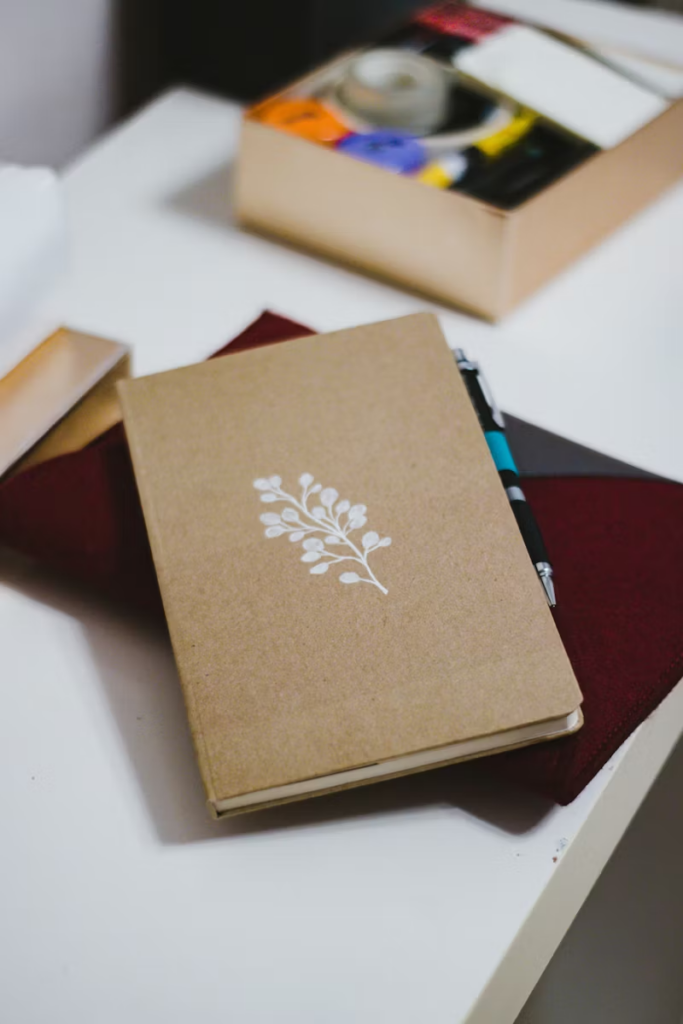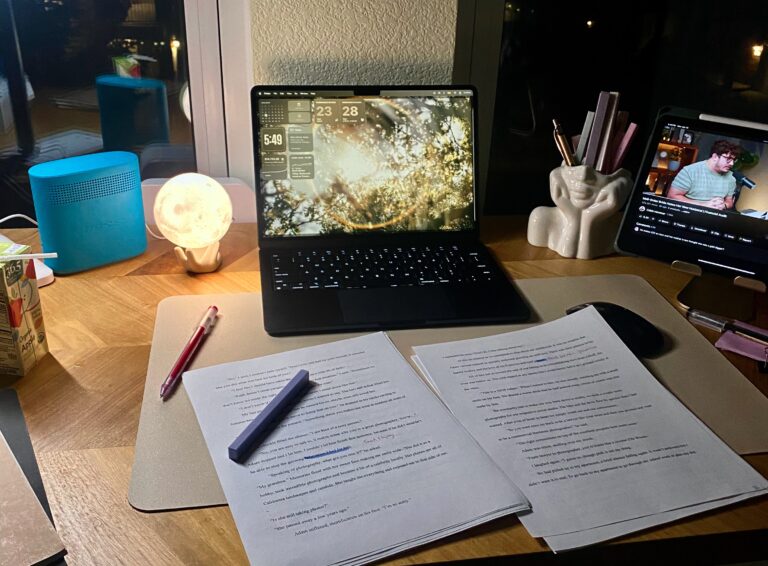By The Cheeky · November 2024
Introduction
In honor of Black Friday, here’s a tough-love reminder: stop buying shit you don’t need and write the damn book. That custom new planner, latest craft book, or course from your idols won’t magically make your novel write itself. Trust me, I’ve been there. This is a wake-up call for all of us procrastinators who fall into the trap of over-preparing and under-doing. It’s time to make mindful choices about what actually helps us—and what’s just another distraction.
Note: This article is for informational purposes only. ·The information is not financial advice, and you should not consider it to be financial advice.

I’m Guilty of This
I’m not here to point fingers. I’m pointing at myself. I’ve bought into the idea that the next purchase—a new course, subscription, journal, or book—will suddenly make me the next big indie author. Surprise: it didn’t. Sure, some tools are truly helpful, but when they replace your actual writing time, drain your bank account, they stop being tools and start being distractions.
Learning the Hard Way to Keep Things Simple
Let’s strip it back to basics: what do you really need to write a novel?
- A device (or pen and paper).
- Yourself.
That’s it.
It’s easy to get caught up in the stuff—planners, templates, aesthetic setups—but at the end of the day, your words are the only thing that matter. When deciding if something will help or hinder, I ask myself a few key questions:

What Does This Thing Bring to the Table?
Ask yourself:
- Is this a need or a want?
- Can I truly afford this?
- Will it bring new information that truly helps me grow as a writer or indie author?
- Will it optimize my workflow and save me time?
- Will it actually help me today—or is it something I might use years from now?
Our Minds Are Always Ready to Justify a Purchase
It’s so easy to convince ourselves that every new purchase is necessary. But here’s the thing: there’s a difference between an expense and an investment.
- An expense is the cost of creating a product, like editing or a book cover. These are essential to producing a high-quality novel.
- An investment is about creating an asset that grows your career in the long term.
Strategic investing becomes crucial as you progress, but in the beginning, it’s about keeping expenses lean while still prioritizing quality.
What Do You Truly Need Right Now?
When publishing a book, certain expenses are non-negotiable. For me, those are book covers and editing. They’re the foundation of a polished, marketable book.
But not everything falls into the “expense” category. Some things are better viewed as investments you make when the time is right.
For example: formatting software.
I spent hours researching the right software. Many options are pricey, and with the amount I’d already invested in my first novella, I hesitated to spend more. That hesitation led me to discover Reedsy, a free and easy-to-use option. It doesn’t have all the bells and whistles of something like Vellum, but it works perfectly for now—and it didn’t cost a cent.
Down the line, when my books are turning a profit, I’ll invest in premium formatting software. But until then, I’ll focus my funds on essentials.

Invest Wisely
Once you start earning from your books, resist the urge to splurge on luxuries like fancy planners or expensive courses. Instead, reinvest that profit into your business:
- Save for better tools that optimize your workflow.
- Set aside money for future projects, like a more expensive editor or marketing campaigns.
Being mindful about your purchases not only helps you stay financially secure but also trains you to think strategically about your author business.
Do I Already Have Something Similar?
The biggest trap I fall into? Buying things only to realize I already have the same information in a dozen other forms.
The internet is wonderful. There’s no shortage of free resources online, and the basic steps to
becoming an indie author are well-documented and easy to find. You don’t need 20 books telling you the same thing—you probably already know what to do.
And let’s talk about notebooks. Raise your hand if you’ve bought one “for the perfect future story” only for it to sit on the shelf, pristine and unused. Instead of hoarding, repurpose what you already have.

Final Thoughts
Influencers and consumerism have us convinced that we need more stuff to succeed. The truth is, success comes from doing the work. Journals, courses, and gadgets aren’t inherently bad, but if they’re cutting into your actual writing time, they’re part of the problem.
Remember, not every purchase is a necessity, and not every investment needs to happen now. By prioritizing essentials and delaying larger investments until your books generate profit, you’ll build a sustainable career.
At the end of the day, your book’s needs are simple. You and your words.
So, stop spending endless hours shopping, start writing, and make progress today.
What’s one thing you can skip buying this week to spend more time on your book?
Would you like to hear more about bookish expenses, investments or splurges?
Let me hear it!








